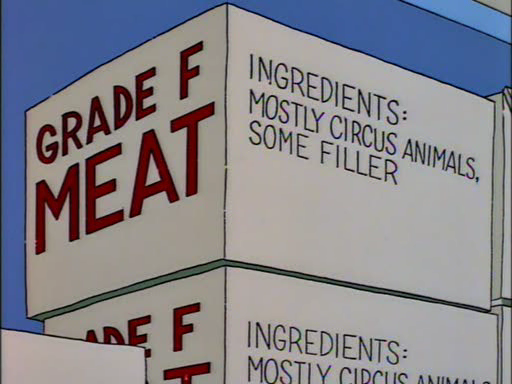General Discussion
Related: Editorials & Other Articles, Issue Forums, Alliance Forums, Region ForumsFascinating Sunday NYT Mag article: How School Lunch Became the Latest Political Battleground
This, meanwhile, was a minor skirmish compared with the battle over pizza sauce. Pizza is one of the school-food companies’ most popular products; schools purchase more than $450 million worth every year. Under the old rules, companies could market pizza slices as a product combining grains, protein and a full serving of vegetables. This was possible thanks to a longstanding loophole: Rather than count the two tablespoons of tomato paste on a serving of pizza as two tablespoons of tomato paste, they could count it as eight tablespoons of tomatoes, the theory being that at some point before being processed, the two tablespoons had existed in the form of several whole tomatoes.
Continue reading the main story
The new rule counted two tablespoons of tomato paste as two tablespoons of tomato paste, no more — a change that got the full attention of the Schwan Food Company, a privately held frozen-food behemoth based in Minnesota, with 14,000 employees and roughly $3 billion in annual sales. Schwan manufactures a reported 70 percent of all pizza sold in American schools. Publicly, Schwan emphasized its ahead-of-the-curve efforts to create more healthful slices meeting the new requirements, with whole-grain crusts and low-fat cheese. Less publicly, in comments to the U.S.D.A., the company laid out a series of objections, ranging from the sentimental to the scientific. “Many of the products made with tomato paste appeal to children and help sustain participation in the school-meal program,” the company warned, while also maintaining that the final sodium reductions would be “impossible to achieve without significant technological advances.” (The Academy of Nutrition and Dietetics, among others, agreed with the salt assessment.) Moreover, if sodium were aggressively reduced in school lunches without corresponding changes in home and restaurant meals, Schwan suggested, students would find their school lunches bland and tasteless.
<snip>
http://www.nytimes.com/2014/10/12/magazine/how-school-lunch-became-the-latest-political-battleground.html
<snip>
The White House wanted Vilsack to hold firm. They viewed objections to the tomato rule as classic special-interest pleading. The lunch ladies, meanwhile, had filed 11 pages of comments asking for a delay or reconsideration of many of the new rules, and officially they agreed with Schwan about the tomato paste. Marshall Matz found himself, not for the last time, in the middle. The administration, particularly the agriculture secretary, was annoyed by the comments — hadn’t the lunch ladies endorsed the bill? — and Matz counseled caution. But when the lunch ladies’ president sent a letter to the White House pledging to work closely with Vilsack, many in the industry were furious. They viewed it as an apology, perhaps engineered by Matz in an effort to soothe the administration’s ruffled feathers. Some felt that Matz was letting his personal beliefs, and desire to stay close to the White House, override the proper interests of the association. Gary Vonck, a senior executive at one of the country’s largest brokerages for school-lunch products and longtime industry adviser to the School Nutrition Association, told me that “there were a lot of times when people disagreed with him.”
In food circles, OFW Law, the boutique law and lobbying firm where Matz is a partner, is known for its bipartisan roster of lobbyists and its long list of food-industry clients, some with competing interests on legislative or regulatory matters. Matz was not only lobbying for the lunch ladies, who wanted to abolish the mandatory fruit-and-vegetable requirement, but he also was general counsel to the fresh-produce trade association, which loved the requirement. Even allies told me Matz could be vague about which client he was representing in any given meeting. Vonck said, “I think Marshall maybe misunderstood what his role was as it relates to S.N.A.”
Cairycat
(1,706 posts)Here's a quote from it I found salient:
Today Obama’s lunch reform, much like Obama’s presidency, feels mired in an endless insurgency — against a stealthy, well-financed and infinitely patient foe.
Initech
(100,063 posts)
hunter
(38,311 posts)True, a lot of it came out of big institutional sized cans, but things like lasagna and spaghetti and hamburgers were actually assembled by school employees, in house.
I went to school for a year in Europe and meals there were prepared from basic ingredients: flour, lard, potatoes, fresh fruits, vegetables, and big chunks of fresh meat (sadly for my American tastes, sometimes organ meats). The uneaten food was collected and sold to local farmers for their pigs, which probably was not a great idea knowing what we know now about flu viruses and other pathogens, but in today's world we could still sterilize this food waste and make compost.
I've heard that in Belgium high school age kids got pitchers of beer to share at each table. Not more than 2% alcohol, but unimaginable in the U.S.A..
Everything is corporate in the U.S.A.. From my perspective corporate "efficiencies" are rarely a good thing. Why shouldn't we have teams of skilled cooks, well paid and well respected full time professionals making wholesome lunches for our children, using local foods whenever possible?
Heating up frozen pizzas manufactured in a distant factory just isn't the same. I guess we'd rather be building useless military machines and fighting useless wars.